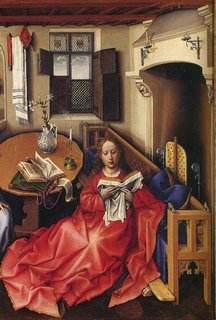
There were four-and-twenty virgins come down from Inverness

Posts in which we talk about reading habits and preferences

There were four-and-twenty virgins come down from Inverness
 I used to finish every book I started. I think it was partly due to a strong desire for closure, but the other thing that motivated me was artistic sympathy. Even if I really didn’t like the beginning of the book, I kept reading, thinking it might get better.
I used to finish every book I started. I think it was partly due to a strong desire for closure, but the other thing that motivated me was artistic sympathy. Even if I really didn’t like the beginning of the book, I kept reading, thinking it might get better.
I still feel that artistic sympathy on opening a new book; I always hope I am going to enjoy it. But things have changed since I became a mother and a writer (just about simultaneously). I have accumulated an enormous TBR list, full of good bets from favorite authors and kindred spirits met at writers’ conferences and the like.
I’ve finally decided that it’s just not worth the time to finish a book I’m not enjoying, when it’s so easy to find something more to my taste. Sometimes I’ll give up after a few chapters, or even a few pages.
Now I feel like I’m striking doom into the hearts of any published or aspiring writers reading this. Because we all want readers to keep going and get to the “good parts”. (Though we try to make them all “good parts”.)
But let me clarify. I’m not really that hard a sell. I do finish and enjoy most books I start.
Things I am NOT picky about:
Where I draw the line:
I do wonder how long other people give a book. Do you always finish? How far do you read before you give up? What makes you give up on a book? What will keep you going even if you’re not quite sold?
Elena
LADY DEARING’S MASQUERADE, an RT Reviewers’ Choice Award nominee
www.elenagreene.com
P.S. The 18th century watch in the picture is available at www.anthonygreen.com.

All writers have an extra-special fascination with words; they’re our toolbox, the hammers that drive in the nails. My word fascination started when I was about nine years old, and my also word-loving parents brought the game Perquackey into the house. The game is basically an anagram game, with the point being to make words out of letter cubes. Within about a month, I was beating my parents. Since then, no-one has ever beaten me at the game, and it’s also given me a life-long obsession with anagrams. When I’m particularly stressed or worried, I start doing anagrams in my head, and I’ve developed certain rules for my anagramming to make it interesting.
So when my book club read Word Freak: Heartbreak, Triumph, Genius, and Obsession in the World of Competitive Scrabble Players a few years ago, I was in alt. Finally, I was reading about people even MORE obsessive than I was.
And its author, Stefan Fatsis, revealed a new type of word obsession, I was even more excited. He talks about names and words that have each and every vowel once and only once: Julia Roberts, for example (sidenote: My best friend, whom I call the Picky Vegetarian, has one of these names. Do you know how excited I was when I figured that out? She almost became my ex-best friend, I went on and on about it so much). Since then, I’ve added that obsession to my repertoire, and am excited to find words like “sequoia,” “Metalious” (as in Grace, author of Peyton Place), and “auctioned,” “cautioned” and “education,” which have the bonus of being anagrams of each other.
It makes sense, then, that I would have signed up for the daily email of Worthless Word of the Day. The email yesterday had this gem that was right up my alley:
the worthless word for the day is: gravedinous[ad. L. gravedinosus, fr. gravedo, heaviness]obs. rare : drowsy, heavy-headed {in Bailey}
this is one of those words that contains the 5 vowels (aeiou) in alphabetical order without repetition; some that are more(?) common: facetious, abstemious, arterious, arsenious,adventitous, abstentious, bacterious, and tragedious — the shortest word of this type seems to be the obs. term aerious (7 letters), meaning “airy” (if you’d like to include ‘y’,you can add -ly to these; e.g., facetiously) hence, gravedinously, I suppose.
To sign up for WWTD, go here: http://home.mn.rr.com/wwftd/
Oh, words just make me shiver. Some of my favorite words are interstitial, penultimate, roil, internecine and solipsistic. Do you have any favorite words? Or word/language obsessions? What are they? Which authors seem to have an especially developed word obsession?
Thanks for feeding my obsession,
Megan
www.meganframpton.com
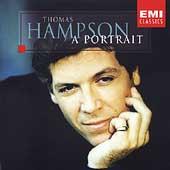 What do you listen to when you write or read? Or do you need dead silence? Do you have recordings you associate with particular books? I like to have music to write too, but I find it distracting when I read, although I was raised in a house where all the major activities took place in one room, and I learned to either block out or blend in the music.
What do you listen to when you write or read? Or do you need dead silence? Do you have recordings you associate with particular books? I like to have music to write too, but I find it distracting when I read, although I was raised in a house where all the major activities took place in one room, and I learned to either block out or blend in the music.
I thought I’d share a few of my favorites with you. I’ve blogged before about how fond I am of opera, and I find the human voice very…inspiring, particularly when it comes in the form of Thomas Hampson, who is tall (6′ 4″) and unbelievably good looking with great blue eyes. And, oh yes, he can sing too, everything from Wagner to lieder to Annie Get Your Gun. (Pause to wipe off drool.)
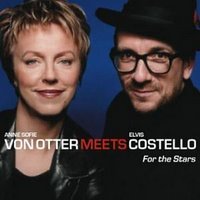
This next one is a crossover album that actually works–mezzo-soprano Anne Sofie von Otter with Elvis Costello. Now I think Elvis Costello is sort of weird and I don’t much like his singing voice, but this collaboration was his idea and I thank him for it every time I listen to it (which is very frequently. This and an Ella Fitzgerald album were the greatest hits of Dedication). She sounds like an opera singer only in a good sort of way–great breath control, and the occasional amazing high note that comes effortlessly out of nowhere. Just gorgeous.
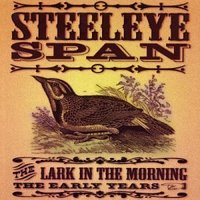 I don’t think this is the Steeleye Span album I have in mind (note to daughter: please return my Steeleye Span!)–I haven’t seen it in so long I can’t remember which one I own. A bit of pure nostalgia here–SS was one of the folk-rock bands around in the late 60s/early 70s. I didn’t realize how skilled they were until I came across their lyrics and realized what a genius their vocalist Maddy Prior was with the words and phrasing.
I don’t think this is the Steeleye Span album I have in mind (note to daughter: please return my Steeleye Span!)–I haven’t seen it in so long I can’t remember which one I own. A bit of pure nostalgia here–SS was one of the folk-rock bands around in the late 60s/early 70s. I didn’t realize how skilled they were until I came across their lyrics and realized what a genius their vocalist Maddy Prior was with the words and phrasing.
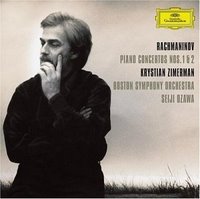
And, Rachmaninov to die for. Krystian Zimerman (sorta cute in a tortured artist way) is my favorite pianist and this is my greatest hit of the moment. I’m writing an erotic historical, and alternate between this and the Messiah as inspiration, something I can’t explain.
Tell us about your favorite background (or otherwise) music!
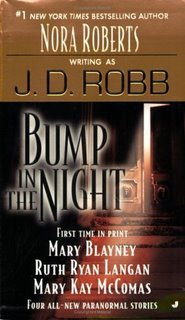
Did you know there is Regency gold in J. D. Robb’s world? In the paranormal anthology Bump in the Night, Mary Blayney’s novella is just that!
It’s fitting that I talk about Poppy’s Coin right after Mother’s Day, because Lindsay, the hero of the story, is both “mother” and “father” to two orphaned children, dealing with such crises as a “pea up the nose” that can only resonate with any mom. He’s really terrific at it, too.
Lindsay, unfortunately, is nearly destitute and desperate to find some means of supporting his two children. A Waterloo hero, he pins all his hopes on selling his commission, not an easy task in peacetime. Then his daughter Poppy hands him a magic coin. He makes a wish for work that is satisfying and pays an impressive wage. Shortly thereafter, Lady Grace Anderson, a beautiful young widow, hires him to be her escort for the season. This scheme works very well for both of them–until love interferes.
I’m a great fan of Mary’s Regencies – Captain’s Mermaid, His Last Lover, His Heart’s Delight, The Pleasure of His Company, A Husband for Mama – all have delighted me. Her characters ring true as “real” people, with both flaws and strengths and their love stories always shine with a quiet gentle grace.
Mary does a particularly wonderful job writing children and I am certain you will be charmed by little Poppy. In a few delicate strokes of the pen, Mary is able to convey the magical hopes and internal anxieties of a little girl who has lost her mother and never knew her real father. I loved her! Her innocent belief in Poppy’s Coin starts a timeless run of good luck!
Enjoy all the stories in Bump in the Night, but prepare for gold in Poppy’s Coin.

(He should be reading Poppy’s Coin!)
Cheers!
Diane